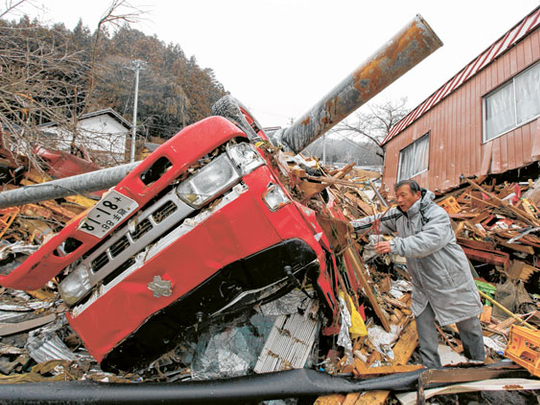
London: Panic over radiation leaks at Japan's earthquake-damaged nuclear plant may be diverting attention from potentially worse threats to public health from a tsunami, like the cold and disrupted supplies of water.
Experts said efforts in Japan should focus on ensuring safe drinking water and the disposal of sewage to prevent outbreaks of killer diseases such as typhoid and cholera, although the likelihood of any such epidemic was remote so far.
"People are getting so concerned about what are at the moment pretty low levels of radiation as far as the general public is concerned. But the real problems... are in dealing with the earthquake and the tsunami," said Dr Richard Wakeford of Britain's University of Manchester.
"If this was a developing country, we'd have people going down in their hundreds and thousands with the likes of typhoid and cholera by now. The questions should be: Where is the sewage going? What is the state of the drinking water? If I were a public health official, that would be my principle concern."
Japan was hit by a massive earthquake on Friday that triggered a tsunami along its northeastern coast, leaving about 850,000 households without electricity and 1.5 million households without running water. More than 440,000 people have been evacuated from their homes, Japanese media said.
But it is the radiation emerging from the Fukushima nuclear plant in northern Japan that has preyed on people's minds, playing on fears of something that cannot be seen, touched and is poorly understood.
Experts say these fears could leave a lasting legacy. Nick Pidgeon, a professor of public understanding of risk at Britain's Cardiff University, said nuclear radiation has several particular factors that make people uniquely and disproportionately afraid of it:
"It's invisible, it's insidious, its effects are often very difficult to isolate and remain unclear many decades later, and its main risk — cancer — is itself a highly-dreaded disease.
‘Perfect storm'
"When you get all of those things together, it's almost a perfect storm of fear factors," he told Reuters.
This leads to what is known as the "social amplification of risk", he added. "And if people believe a risk to be real — then it becomes real in its consequences."
Studies of previous nuclear accidents have found the psychological impact of anxiety about radiation, and the rush to try to get away from it, is very real — even if the actual health risks from radiation exposure are limited.











